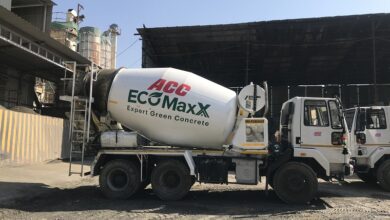
Smart cities and smart homes: India’s future
Smart cities and smart homes are expected to be a major part of India’s future, with the global smart home market projected to grow to over Rs 14 lakh crore by 2025.
A report by Statistica points out that India is expected to see significant growth in revenue within the Smart Cities market. Further, by 2025, the revenue in this market is estimated to reach US$2.23 billion. Meanwhile its good tidings for smart homes as well. Revenue in the Smart Home market is projected to reach US$7.3bn in 2025 and revenue is expected to show an annual growth rate (CAGR 2025-2029) of 7.71 percent.
Today’s consumers are looking for a better quality of life, sustainability, good connectivity and convenience at their fingertips. And, Artificial Intelligence (AI) is powering consumer choices in residential real estate in India.A combination of technology with well-planned and connected cities are the new keys to these aspirations.
Residential Real Estate: Why Smart Cities Matter
A CBRE Report defines smart cities as an urban area that utilizes advanced technology and data-driven solutions to improve the quality of life for its residents by optimizing infrastructure, transportation, energy management, waste disposal, and citizen engagement.
Here are some reasons for their impact on housing:
- Connectivity: In an era of newer career opportunities and an evolving customer base, the infrastructure has to be top-notch to meet the rising demands of people. Therefore a top line public transportation system, paved roads with CCTV cameras for surveillance, green spaces, and connectivity between arterial, small, and main roads are significant to facilitate smooth and fast travel. Considering this, smart cities are planned with connectivity as a focal point.
- Sustainability: The presence of green buildings, urban green spaces, parks, smart waste disposal, green fuels, and rainwater harvesting are some critical steps to scaling back carbon footprints, beating air pollution, and providing a healthier lifestyle. Also, buildings designed with sustainable materials are another added advantage that gives these cities an edge over the others.
- Enhanced living experience: The smart cities are aimed at providing adequate water supply, reliable electricity, sanitation, affordable housing, robust IT connectivity, efficient urban mobility, and enhanced safety measures thereby providing an enhanced living experience to its customers.
Here’s how smart homes are redefining India’s residential landscape:
- Future Perfect: In an era of rapid technological shifts and changes, smart homes are a good option for the future with the increase in automation and Internet of things (IoT).
- The perks: Residents of smart homes have scaled down electricity and water bills thanks to the presence of solar powered equipment and sensor-based appliances. Compared to conventional homes, smart homes are built with sustainable materials that are designed to provide maximum cooling and also use motion sensor lights that automatically switch on and off upon motion detection and other technologies like automatic blinds, water-saving mechanisms and intelligent thermostats.
- Higher Security: Installation ofsecurity cameras, video calling features and installation of biometrics and facial recognition technologies are expected to gain more ground in India in the coming years. This extra layer of security is being added by some homebuyers in an effort to keep their elderly parents and family safe at all hours. These technologies also work as an intelligent deterrent to keep burglars and other anti-social elements at bay.
Smart homes scale down carbon emissions by 30 percent while smart cities also reduce greenhouse gas emissions by generating less heat. Measures like pollution monitoring, remote working, intelligent traffic management, smart energy meters and optimizing street lighting can create big wins.






